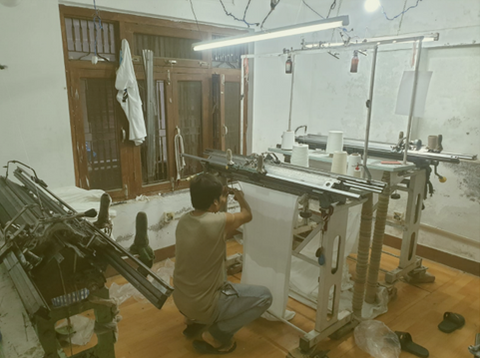Cashmere is a luxurious and coveted fabric that has been prized for centuries for its softness, warmth, and elegance. As consumers become increasingly aware of the need to make conscious choices in fashion, the demand for sustainable cashmere is on the rise. Fortunately, sustainable and ethical practices are being implemented throughout the cashmere industry, from sourcing and supply chain management to production techniques and recycling.
In this article, we will delve into the eco-friendly advantages of ethical and sustainable cashmere, while also shedding light on Signature Cashmere's exceptional production processes. Join us in discovering how choosing ethical and sustainable cashmere can not only enhance your wardrobe but also contribute to a better world.
What is Pashmina and Cashmere?
Pashmina, derived from the neck and under-belly of the Capra Hircus goat thriving at altitudes above 12,000 feet in the Himalayas, is a prized wool renowned for its exceptional softness, warmth, and lightness. Our pashminas, available on our website, are hand-woven using a blend of 30% cashmere and 70% merino wool, which is sourced by our supplier in Nepal.
While retaining the softness and warmth of pure cashmere, this blend offers increased durability and affordability, making it a popular choice for those seeking a luxurious yet practical option.
This luxury fabric, known for centuries as a symbol of status and refinement, has been worn by the world's elite. The traditional process of obtaining Pashmina involves combing or shearing the goats and then sorting, cleaning, spinning, and weaving the fibers into high-quality garments and accessories.
Although traditional production methods have faced criticism for their environmental impact and ethical concerns, innovative and sustainable practices are emerging that offer a more conscious and eco-friendly approach to this beloved fabric.
The Environmental Impact of Cashmere Production
Signature Cashmere takes pride in their process for making Pashmina, which involves highly skilled craftsmen and women carefully weaving, washing, dyeing, tasseling, ironing, labeling, performing final quality control, and packing each piece by hand.
Despite the significant amount of time and effort put into each piece, the company ensures that their environmental impact is minimal such as having proper waste management practices by using the government sewage system.
Additionally, the plastic packaging used for shipping is thoughtfully chosen to protect the Pashmina during transit and is recycled in the UK. By prioritising sustainable practices, Signature Cashmere produces Pashminas that are both beautiful and ethically made.

Sustainable Cashmere Production Practices
Signature Cashmere is committed to sustainable cashmere production practices. The company's approach starts with responsible sourcing and supply chain management, ensuring that the cashmere they use comes from sustainable sources.
They also prioritise responsible grazing and land management, working with farmers to ensure that the land is managed in an environmentally friendly way. To minimise their environmental impact, they use eco-friendly production techniques throughout their process.
By prioritising sustainability throughout their production process, Signature Cashmere is working to minimise their impact on the environment while creating beautiful and high-quality products.
Benefits of Choosing Ethical and Sustainable Cashmere
Choosing ethical and sustainable cashmere, such as that produced by Signature Cashmere, has numerous benefits. One of the most significant is the positive environmental impact. By sourcing and producing cashmere sustainably, companies can minimise the damage done to natural ecosystems, prevent overgrazing, and reduce water usage.
This approach also has social and ethical benefits, as it ensures that the workers involved in cashmere production are treated fairly, paid a living wage, and work in safe conditions. At Signature Cashmere, the small factory employs 25 people from the local Nepali community, including 15 women and 10 men. The workers are paid a salary plus a bonus when there are lots of orders. Signature Cashmere also gives back to the local community by sponsoring two places for orphan and HIV-affected children.
Another benefit of ethical and sustainable cashmere is the quality and durability of the product. At Signature Cashmere, our sustainable cashmere is produced in a way that prioritises the longevity of the material, resulting in a product that lasts longer, is of higher quality, and can be passed down for generations.
Ultimately, choosing ethical and sustainable cashmere benefits everyone involved, from the environment to the workers to the customers who receive a high-quality, long-lasting product!


